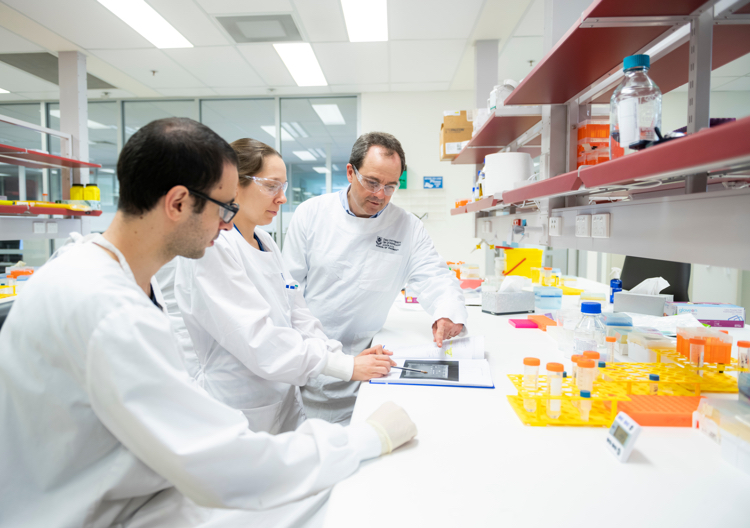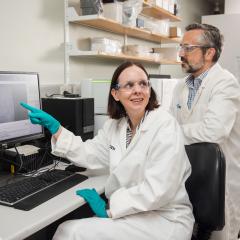 With the support of Cancer Council, one Australian researcher with a brilliant idea has been able to establish a global field of research that aims to transform how we treat and improve survival for the hardest to treat forms of breast cancers.
With the support of Cancer Council, one Australian researcher with a brilliant idea has been able to establish a global field of research that aims to transform how we treat and improve survival for the hardest to treat forms of breast cancers.
Breast cancer is one of the most common cancers in Australia and around the world.
Whilst treatment has improved significantly, around 15-20 per cent of breast cancer cases do not respond to new therapies.
More common in younger women, these breast cancers tend to be more aggressive and more likely to return.
Professor Gregory Monteith, based at The University of Queensland School of Pharmacy and Mater Research Institute-UQ, is leading the world in the development of new treatment options for this group of women.
He has identified specific characteristics in the cells of these types of breast cancer and from this, is helping develop new types of drug treatments to stop these cancers growing and spreading.
While Professor Monteith is now internationally recognised for his work, there was a time where it looked like his research would never get off the ground.
Starting his career in cardiovascular disease, Professor Monteith saw a huge opportunity to extend his research into cancer therapies.
More specifically, he could see his work held great promise for women diagnosed with triple negative breast cancer, where few treatment options were available.
Full story is published on the Cancer Council website.


